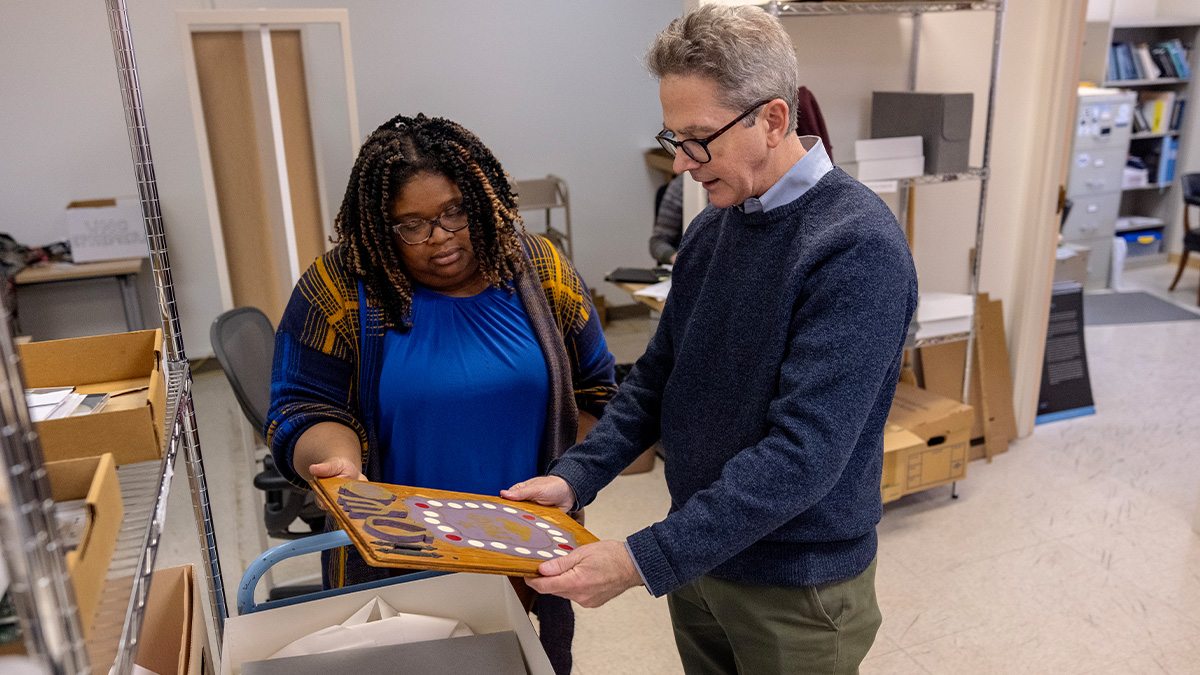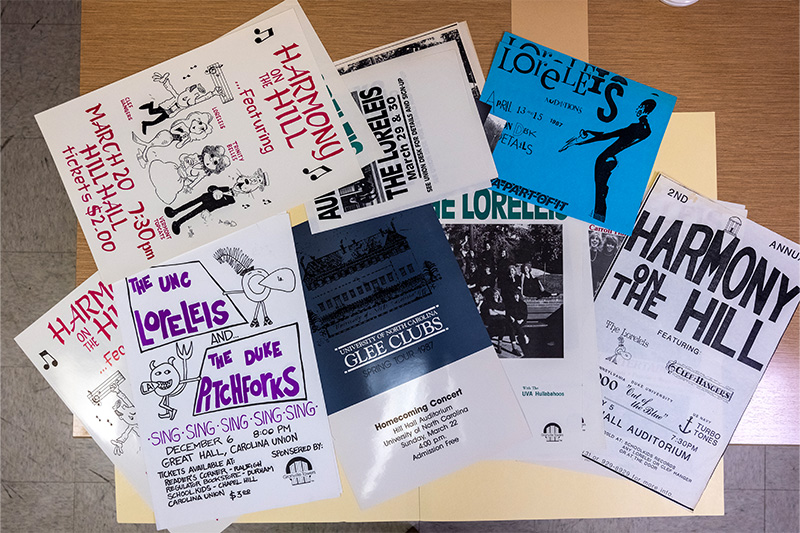University Archives preserves student organization history
The library team is interested in collecting materials that tell the story of student life at Carolina.

University Archives, part of the Wilson Special Collections Library in the University Libraries, has been collecting student organization materials since UNC-Chapel Hill’s founding. More than 50 student organizations, from 1795 to present, are represented in the archive, including the Black Student Movement, the Carolina Gay Association and the University’s oldest student organizations, the Dialectic and Philanthropic Societies. The archival team hopes to continue growing its work to preserve records of student life at Carolina.
“Our traditional work is archiving the records of University administrators, departments and boards, but those don’t always reflect what it was like to be a student at Carolina,” said University Archivist Nicholas Graham. “So anything that comes to us that really shows what it was like to be a student here at any moment in time is always welcomed and valued.”
The team’s favorite items include a scrapbook of photos with original members of Omega Psi Phi, records from the Cardboard Club, a club that organized composite images via large cards held by fans at football games, and even student dance cards, which collected the names of dance partners during campus events.
“If your story is not in the archive, where is it located? Because if your story is not being documented and told by you, then it won’t be told correctly,” said Lolita Rowe, assistant University archivist for outreach and engagement. “So put your story, your materials, in the archive where current and future generations can come to look at it and understand that your story is part of the tapestry of our University.”

Carolina students are encouraged to use the student organizations archive for their own research. “We want you to come in. We want your to do your research here,” said Rowe. (Jon Gardiner/UNC-Chapel Hill)
Graham, Rowe and Jessica Venlet, assistant University archivist for digital records and records management, see their work with the student organization archive as a way to help students tell their own stories of the diverse community at Carolina. They encourage students to think about their current experiences as an active and important part of the University’s history.
“The things that Carolina students are doing are building on the work that has been done by folks in the past,” Graham said. “This is material that’ll be useful for historians, for exhibits and classroom instruction, but it’ll also be valuable for the students who come after them. Come in and look at materials that are here now; they provide a meaningful glimpse into the past.”
A significant value of the archive is accessibility and visibility of the materials it houses for use by both students and researchers.
“We’re not a warehouse. We don’t store things. We want you to come and use it,” Rowe said. “Everyone says basically the same thing: ‘We thought we weren’t allowed in here.’ No, we want you to come in. We want you to do your research here. We want you to have those primary sources, and archives tells a more complete and robust story because it makes the individuals human.”
The University Archives team also hopes their work will encourage student organizations to think about how to store their materials and long-term preservation.
“We’re available to help think about how student organizations preserve their history, whether those materials come to the library or not,” Graham said. “Some student organizations may want to preserve materials just for themselves, and that’s fine. We’re still happy to talk with them about strategies for preservation.”







